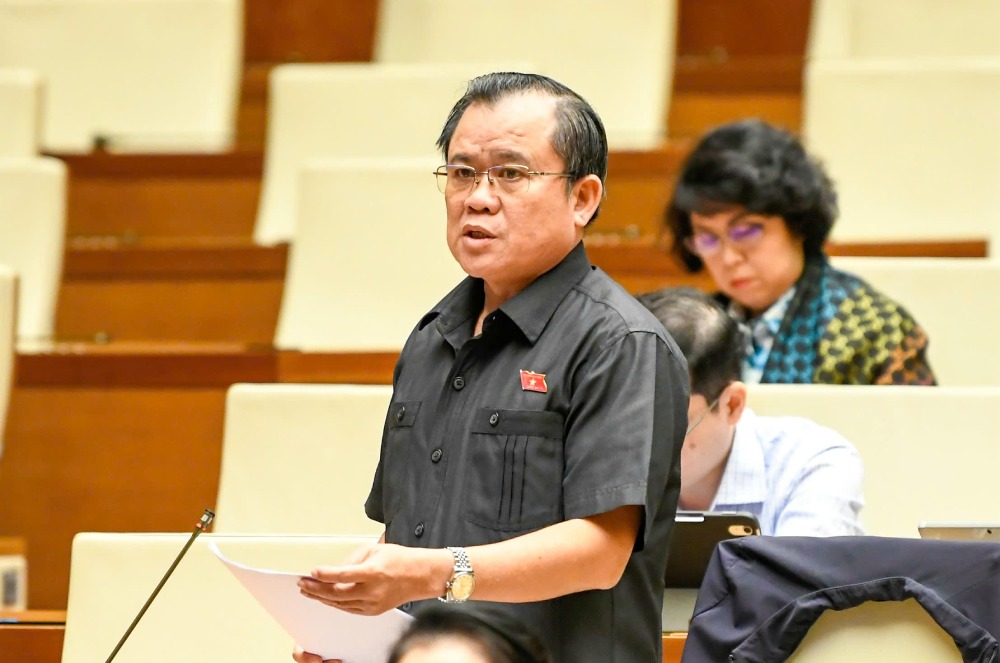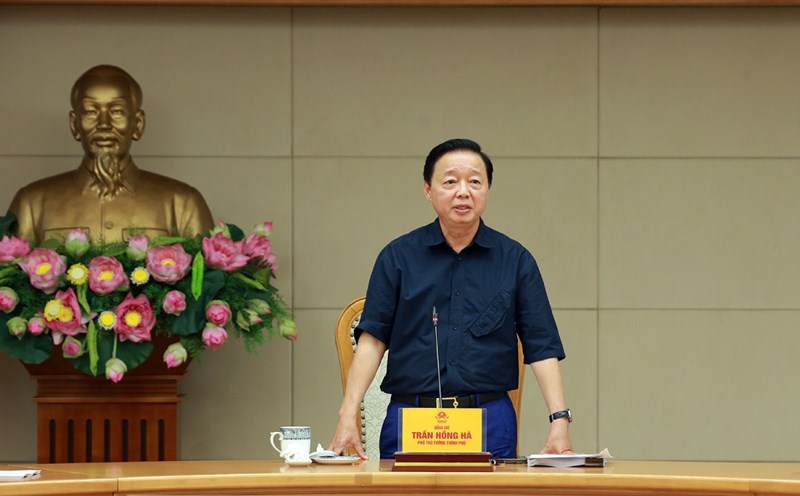The Lo River bridge is bare of steel core, delegates raise big questions about appraisal and acceptance
On the morning of November 14, the National Assembly discussed in the hall the draft Law on Construction (amended).
National Assembly Delegate (NAD) Ta Van Ha - Vice Chairman of the Committee for Culture and Society - said that this amendment to the law needs to be overcome with the " acute and chronic disease" of many years of public investment projects that must be adjusted many times, with prolonged time, capital increase, and slow progress.
According to the delegate, the most core story is still the investment preparation stage. The investment must ensure quality, be evaluated and forecasted in accordance with reality.
In some countries, the investment preparation stage takes a very long time but is only constructed in a short period of time. In our country, there are several months of preparation, but construction takes 4-5 years, causing capital increase, slow progress, and many costs.
Another important issue mentioned by the delegate is the quality, acceptance, and quality control of works and projects.
Taking the example of the case of the Lo River bridge piers showing exposed steel core that is causing public outrage, the delegate said that this is a big question mark about the appraisal, acceptance and quality management of key projects.
"Whose responsibility is it? What is the cause? Is our team lacking capacity and weak or is it due to inadequate equipment?", the delegate asked a series of questions and suggested changing the mindset of not following the number of projects. Because for budget projects, "any project is expensive" and must be made for construction.
The delegate said that the repeal of the Construction Law (amended) is "a step forward" and proposed to boldly expand the scope of license cancellation to many subjects, increase post-inspection, and remove licensing instead of removing construction management.
"We agree with the delegates to boldly revoke the construction permit. The question is, if the license is revoked, will people build it haphazardly? I think that removing licensing procedures is not removing state management, said the delegate.
The delegate also suggested that it is necessary to clearly distinguish this issue because in fact, in a year, Hanoi and Ho Chi Minh City have hundreds of thousands of licensed projects, but why are there still violations?
" Maintaining construction permits will increase unofficial costs for people, prolong time, and even cause negative consequences" - the delegate said.
According to the delegate, regarding construction, we have standards and construction standards, with red lines, density, height, and recesses, all of which are transparent. In addition, there is also a post-inspection by the State management agency and if there are regulations, it is necessary to strictly handle those who violate.

Need to sanction leaders for prolonged construction violations
Also commenting, delegate Nguyen Tam Hung (HCMC delegation) said that the draft law has been strongly decentralized when assigning the commune level to manage construction order associated with implementing the 2-level local government model from July 1 to present.
However, it is proposed to have more specific regulations to facilitate implementation and submission such as authorizing the People's Committees at the commune level to inspect the site, make records of violations, and temporarily suspend construction for individual housing projects and small projects.
Carry out receiving and returning results of some simple procedures according to the one-stop electronic mechanism connecting with the provincial level. At the same time, there are sanctions for responsibility towards the head if there are prolonged violations of construction order.
"This will shorten the management gap, promote the effectiveness of local government at the grassroots level, especially at the commune level" - the delegate said.











